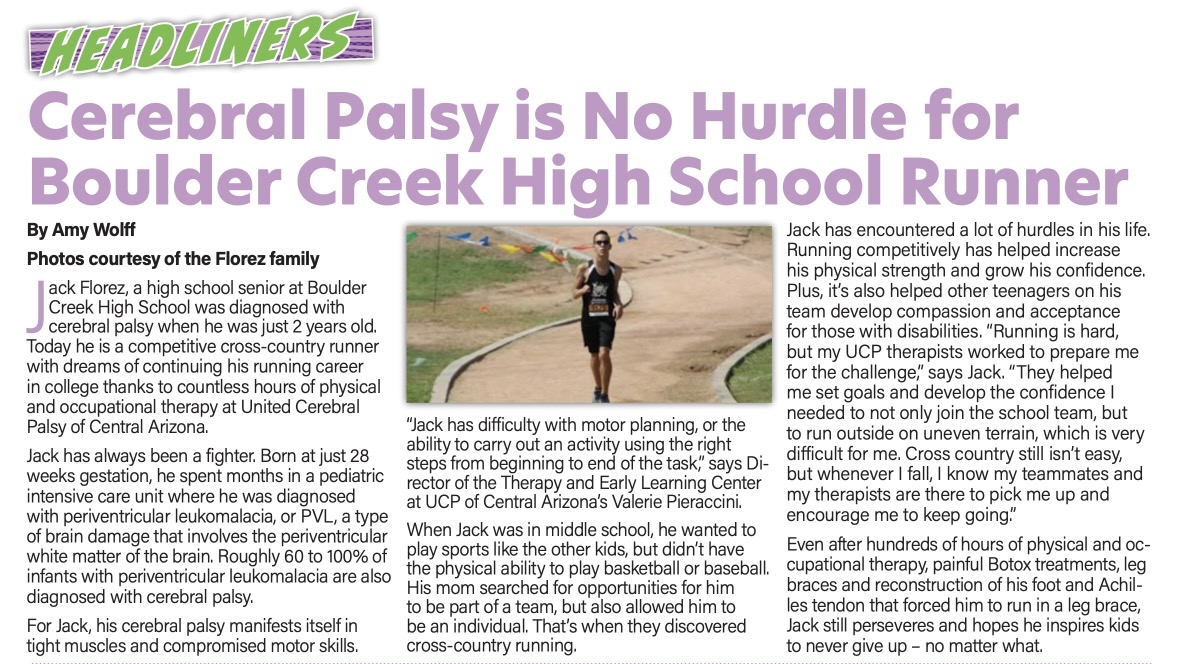Cerebral Palsy is No Hurdle for Boulder Creek High School Runner
By Amy Wolff
Photos courtesy of the Florez family
Jack Florez, a high school senior at Boulder Creek High School was diagnosed with cerebral palsy when he was just 2 years old. Today he is a competitive cross-country runner with dreams of continuing his running career in college thanks to countless hours of physical and occupational therapy at United Cerebral Palsy of Central Arizona.
Jack has always been a fighter. Born at just 28 weeks gestation, he spent months in a pediatric intensive care unit where he was diagnosed with periventricular leukomalacia, or PVL, a type of brain damage that involves the periventricular white matter of the brain. Roughly 60 to 100% of infants with periventricular leukomalacia are also diagnosed with cerebral palsy.
For Jack, his cerebral palsy manifests itself in tight muscles and compromised motor skills. “Jack has difficulty with motor planning, or the ability to carry out an activity using the right steps from beginning to end of the task,” says Director of the Therapy and Early Learning Center at UCP of Central Arizona’s Valerie Pieraccini.
When Jack was in middle school, he wanted to play sports like the other kids, but didn’t have the physical ability to play basketball or baseball. His mom searched for opportunities for him to be part of a team, but also allowed him to be an individual. That’s when they discovered cross-country running.
Jack has encountered a lot of hurdles in his life. Running competitively has helped increase his physical strength and grow his confidence. Plus, it’s also helped other teenagers on his team develop compassion and acceptance for those with disabilities. “Running is hard, but my UCP therapists worked to prepare me for the challenge,” says Jack. “They helped me set goals and develop the confidence I needed to not only join the school team, but to run outside on uneven terrain, which is very difficult for me. Cross country still isn’t easy, but whenever I fall, I know my teammates and my therapists are there to pick me up and encourage me to keep going.”
Even after hundreds of hours of physical and occupational therapy, painful Botox treatments, leg braces and reconstruction of his foot and Achilles tendon that forced him to run in a leg brace, Jack still perseveres and hopes he inspires kids to never give up – no matter what.






